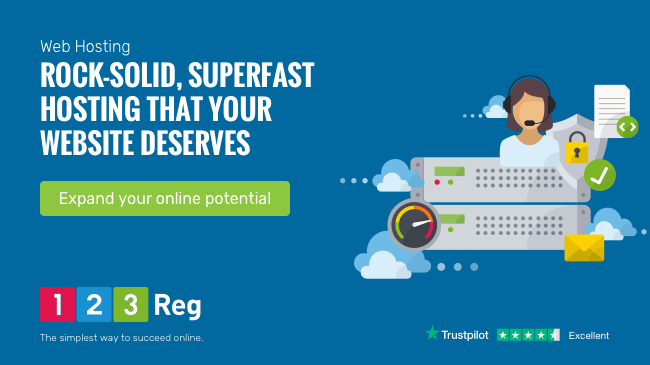Web Hosting Speed and SEO – What You Need to Know
A good website that’s optimised for search engines is a must for any online business, but did you know that a slow website could undo all your hard work? Site speed can impact on your search engine optimisation (SEO) efforts and on customer satisfaction. In this blog, we’ll take a look at the connection between web hosting speed and SEO — and why it’s important for your online presence.
Why is website speed important for SEO?
Google uses website speed as a metric for ranking websites. That means if your site is slower than the sites of your rivals, your Google rankings could suffer.
But why would Google do this?
Poor website performance affects user engagement
Nobody likes a slow-loading website. In fact, studies have shown that if a page takes more than three seconds to load, the number of people leaving the site quickly (the bounce rate) increases dramatically.
Website load time statistics show a one-second delay in page loading time causes:
- a 11% drop in page views
- a 7% drop in conversion rates
- a 16% drop in customer satisfaction
In short, the longer it takes for your website to load, the unhappier your customers will be and this will likely result in loss of sales and missed opportunities for your business.
But why would Google care about this? Well, imagine you type a search query into Google and click on the first result and the page takes five second to load. Would you be happy with that? The chances are you’d head back to the search results and try a different site.
Google wants to keep its users happy, so it wants to avoid a situation like this. That’s why faster websites may get a rankings boost compared to slower websites.
Poor loading speeds make your website more difficult to index
Poor loading speeds can also impact on your search engine rankings in another way. If you site loads slowly, Google may struggle to process the information on your site. If that happens, your site may not appear in Google’s index at all.
Website speed and hosting performance
We’ve seen how poor loading time can negatively impact SEO, so let’s take a look at how hosting can impact loading time.
All your website’s information – including content, media, databases and more – is stored on a server that can be either dedicated to your business or shared with other website owners.
The performance of the server will impact the loading speed for each and every visitor that wants to access your website.
A brief look at how hosting works
Every time someone visits a page on your website, your hosting server and their device connect to send and retrieve all the data required to display that page.
When your chosen hosting provider provides fast and reliable web hosting services, this roundtrip will translate into a seamless digital experience – whenever an online visitor accesses your website, it will load within 3 to 5 seconds.
If your server’s performance is poor, it will take longer to respond, increasing the waiting time for visitors, to the point where abandonment rates might increase dramatically.
What does this mean for your small business?
A poorly performing hosting server could damage your business. If people don’t visit your site because it loads slowly, you lose customers and you lose sales.
If you use Google Analytics, a high bounce rate could be a sign of slow page loading times. You can use a tool like Pingdom to test pages on your site and discover if any of them are loading slowly.
Picking a hosting package that delivers speed
Selecting the right hosting package can be hard. Here are a few things that will help ensure your site loads quickly.
Nearby Server location
Whenever someone visits one of your web pages, they’re are sending a message asking the server to load it. This message has to physically travel the distance between user and server. Then the server has to send the requested data back. This is the reason why your hosting server location is important.
For example, if your customers are mainly UK-based, it is very important for your online business’s success to choose a hosting provider that has a UK-based server. This way, the signal will reach the hosting server shortly, and return your content in a fast and reliable manner.
A content delivery network (CDN)
A content delivery network or CDN is a network of servers based in different locations around the world, which are used to send content to users located nearby.
Let’s say you create a website for your UK-based business, but you might also have customers who wish to purchase your products internationally. In this case, the main copy of your data will be stored on a primary host server – based in the UK, but cached copies of your information will also be stored in remote servers worldwide. This way, if your website is accessed from overseas, the CDN will ensure that your international customers can access your website quickly and place their orders without any issues.
Summing up
Fast website load times, and because of that fast hosting, are a factor when it comes to both SEO and customer satisfaction. Web hosting performance can directly impact website speed and page loading times and in turn this will affect not only user engagement, but also site crawlability and long-term performance. If you’re a small business owner, be sure to opt for a provider focused on delivering quality web hosting solutions that you can rely on. This way, you can ensure a seamless digital experience for all your website visitors, at any time.

